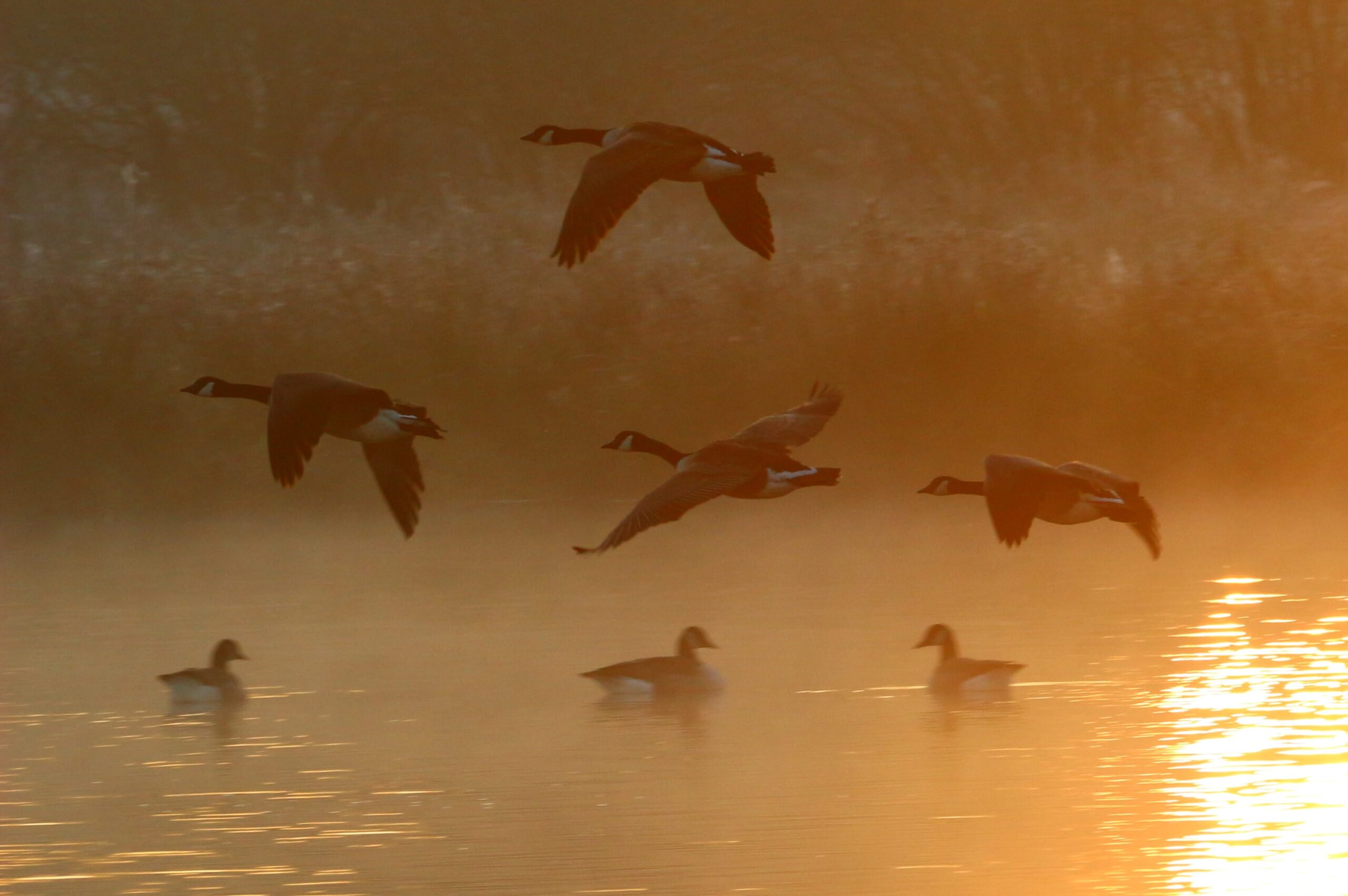Wild Geese and Soft Mornings: A Poetry Analysis by Libby Kassuelke

Between bites of very-late-night tepid ramen, in an attempt to escape my never-ending internal to-do list, I’ve been reading a lot of Mary Oliver’s poetry. Her work is a comfort object akin to warm milk, and I prefer my belly to be full of it. Her poem “Wild Geese” is one that I keep coming back to.
“Her work is a comfort object akin to warm milk, and I prefer my belly to be full of it.”
Mary Oliver draws heavily on themes from the romantic period. Like the rest of her poetry, “Wild Geese” is full of imagery of the natural world. She has a gift for making her readers experience true awe, like we are part of something larger than ourselves and have permission to stop and admire every moving piece around us. We are just cogs in this gigantic, incredibly complex clock. She starts by addressing the guilt we feel for not being able to measure up. She makes the things we do to pay penance for our sins sound silly and futile like, “walk[ing] on your knees for a hundred miles through the desert, repenting.” She then urges us to be the communal creatures we are, to be human, to share our despair with each other without being overcome by it.
She compares the opportunities the world gives us to the call of geese, “harsh and exciting, over and over announcing your place in the family of things.” She calls us to be a part of the world around us, “the sun and the clear pebbles of rain… the mountains and the rivers,” to share our sorrows and take advantage of each opportunity we are given to create the world we want to see, be the person we wish to be, and love that person knowing there is no need to bruise our knees for every mistake.
“[T]here is no need to bruise our knees for every mistake.”
The second poem that’s been rattling around in my head is “Softest of Mornings.” The poem describes the beauty of a slow morning. I think one of the most compelling thoughts in this piece is, “And how much honey can the heart stand, I wonder, before it must break?” The sentiment of waiting for the other shoe to drop, the fear of too much of a good thing, is no stranger to me. Later she says, “No doubt clocks are ticking loudly all over the world.” She is reluctant to do the mundane and numbing, yet necessary acts of our current culture. She lives for what others would call “trivial.” The poem describes her struggle to pull herself away from this state of peace and admiration and into the busy of the day. This poem ends with one of my all-time favorite quotes. She wonders how to “break this” and says, “How shall I go on, with my introspective and ambitious life?” What a way to live.
Mary Oliver’s work isn’t just a pretty picture of snails and birds and flowers. Her poems contain a wealth of insight. One topic I find particularly well suited to these two poems is her condemnation of productivity culture. If not condemnation, a less than guilty admittance of her own valuable leisure time. She calls us to simply be, to fully experience the world and each detail God has so carefully created for us. Maybe next time I make my 2 a.m. ramen I’ll remember to stop, eat the noodles while they’re still hot, and just be. Just for a second.
Oliver, Mary. “Wild Geese.” 2004. Brain Pickings, www.brainpickings.org/2014/09/24/mary-oliver-reads-wild-geese/. Accessed 16 October 2021.
Oliver, Mary. “Softest of Mornings.” Clod and Pebble, clodandpebble.wordpress.com/2021/05/07/softest-of-mornings-by-mary-oliver/. Accessed 16 October 2021.
